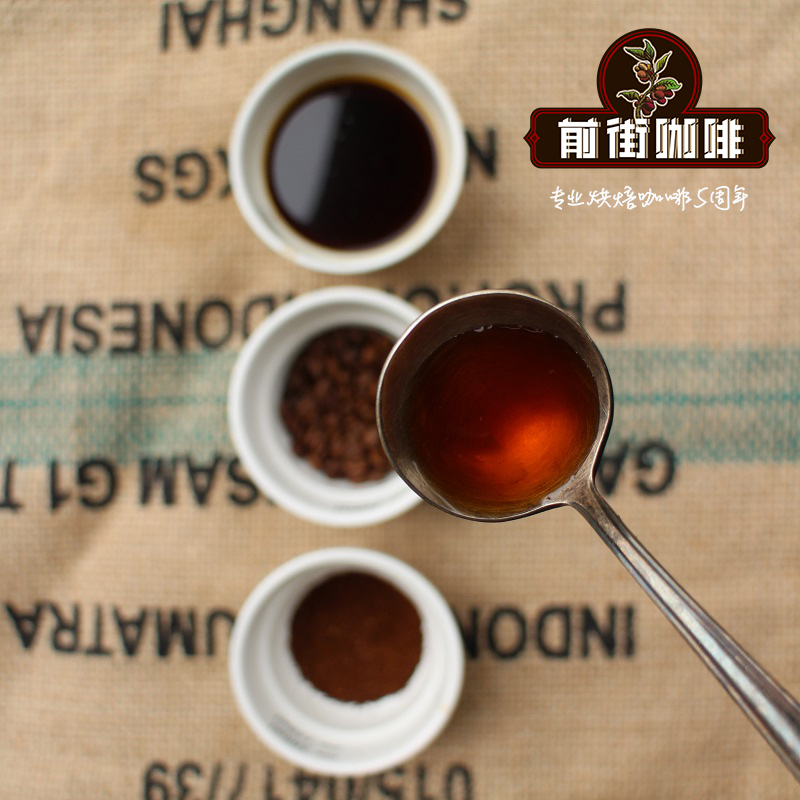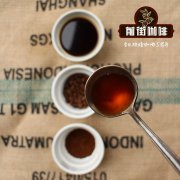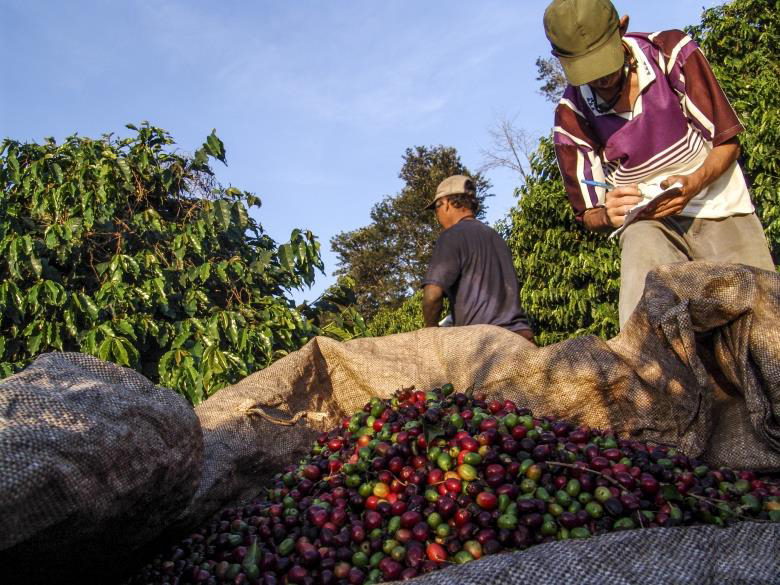Kenya Montello Manor Kenya AA, the best coffee in Kenya

Professional coffee knowledge exchange more coffee bean information please follow the coffee workshop (Wechat official account cafe_style)
Kenya is located on the plateau of East Africa, and although it is close to Ethiopia, the native place of coffee, the mass production of coffee beans is more than 1,000 years late. It began about a hundred years ago after the then British ruling class invested heavily to encircle large tracts of land and hired local aborigines to open up estates.
The earliest coffee farms were mainly located in Nairobi, a small town with only a railway station, within tens of kilometers. This period was also the co-establishment period of many large coffee estates in Kenya, and all Kenyan coffee was first produced by large estates, which formed the basis of today's Kenyan manor production system.
Later, with the expansion of downtown Nairobi, coffee estates around the Kenyan capital gradually disappeared, and the cultivated areas developed to the northeast. The owners of large estates were taken over by powerful local people as the British withdrew from Kenya. At the same time, millions of small farmers invested in the planting of coffee trees. Large estates no longer dominate the production of coffee beans. At present, the small farmers' cooperative system and the manor system account for 40% and 60% of the production respectively.
Located in Kiambu, about 40 kilometers northeast of Nairobi, Montalo Manor is a standard large Kenyan estate with an annual output of 260m tons (4350 bags) of raw beans. The industrial road in the manor is full of rows and neatly arranged coffee trees, which is very spectacular!
Because it is not easy to manage such a large manor, Monteiro Manor plans the whole estate into five A/B/C/D/E blocks, each of which is divided into three or six small blocks of about 10 hectares, with a total of 21 blocks. The manor manager planted different varieties in each block, including SL28, SL34, French missionaries, Ruiru11, Batian..., and sprayed / fertilized / pruned / harvested according to the plan. And so on, which is also a feature of many large estates in Kenya: perfect planning, uniform operation, attaching importance to the introduction of agricultural science and technology, and good management. The standard of the product has been maintained quite smoothly!
Because of its planned and rigorous work, Montalo Manor has also been certified as Utz Coffee.
The manor has two harvest seasons each year, April and October. After harvest, all berries are sent to the manor's own washing plant. Monteiro's own treatment plant uses the standard Kenyan method of washing: after peeling the berries, after 24 hours of dry fermentation, washing and using the buoyancy of the seeds, the heaviest P1 and P2 are soaked in water for 72 hours, and then dried into shell beans. Interestingly, what is dry is not sent directly to the scaffolding sunburn, but first to the ventilated house using the chimney effect that uses the roof to absorb sunlight and heat, and the warm natural hot air is slowly passed through the moist shell beans laid on the drying bed in the house. the warm air of pure renewable energy is pre-dried to a certain extent, and then sent to the African bedstead with limited space. The utilization efficiency of the whole process space can be the highest, at the same time, it does not consume energy and can achieve the highest quality of raw beans!
When the manor produces washed shelled beans, it will be handed over to the drying plant of the NCE bidding agent for shelling, screening and sorting. Wait for the procedure, and then divide it into NCE according to the standard specification of AA/AB/C/PB/TT/T. According to different grades, AA is the grade of Netlist 18, with large, full and heavy particles, which belongs to high-grade products. The estate actually produces AB/C/PB and even TT/T/E. And other specifications with smaller particles or lighter specific gravity. In the operating system of NCE, each harvest of coffee beans in the manor is carried out in a "micro-batch independent" way. That is, these raw beans will not be mixed with the raw beans of other producers before the NCE auction, but each batch of coffee on the estate will be processed and stored independently.
When the raw beans are processed, the NCE bidding agent commissioned by Monteiro Manor will take samples from different grades and micro-batches of raw beans and send them to the bidding center sample room of NCE for buyers to ask for samples. And assemble each batch of raw beans into a bidding catalogue and send them to the NCE bidding center for buyers to obtain, and then bid according to the schedule of the auction day. The Nairobi Coffee auction (NCE Auction), which is held every Tuesday, is the most important platform for mediating buyers and sellers. During the peak season, 600,800 batches of raw beans can often be traded on one bidding day, ranging from hundreds of kilograms to several tons.
This batch of AA raw beans is purchased in batches after Lianjie Coffee sent staff to visit the manor: the flavor is a balanced and diversified feeling formed by Kenya's unique thick acidity, purple grape fruit, guava, toffee, roasted almonds and other aromas, setting off a round, sour and sweet feeling, as if to convey to you a clear image of a large manor in Kiambu.
Product name
Country Kenya
Producing area
Graded AA
Producer Monteiro Manor
Treated washing-Kenyan style
Variety
1600 meters above sea level
Authentication Utz certification
Important Notice :
前街咖啡 FrontStreet Coffee has moved to new addredd:
FrontStreet Coffee Address: 315,Donghua East Road,GuangZhou
Tel:020 38364473
- Prev

Home Tuani processing Plant in Neri, Kenya the best coffee in Kenya is produced by Kenya AA.
Professional coffee knowledge exchange more coffee bean information please follow the coffee workshop (Wechat official account cafe_style) Kenya Neri production area Jia Tuani processing plant country: Kenya production area: Neri producer: nearby small farmers treatment plant: Jia Tuani treatment plant treatment method: Kenyan washing treatment varieties: SL28, SL34, altitude: 1400 1800
- Next

There are 60 coffee producing countries in the world! Northerly to Nepal, southernmost to Paraguay
Professional coffee knowledge exchange more coffee bean information please follow the coffee workshop (Wechat official account cafe_style) you should know the coffee story the vast majority of coffee producing countries are in the Tropic of Cancer and Tropic of Cancer, there are now about 60 countries; Arabica seed and Robusta seed are produced in 2 major varieties. Article = Chengmeitang Publishing editorial Department 60 coffee producing countries, mainly planted
Related
- Does Rose Summer choose Blue, Green or Red? Detailed explanation of Rose Summer Coffee plots and Classification in Panamanian Jade Manor
- What is the difference between the origin, producing area, processing plant, cooperative and manor of coffee beans?
- How fine does the espresso powder fit? how to grind the espresso?
- Sca coffee roasting degree color card coffee roasting degree 8 roasting color values what do you mean?
- The practice of lattes: how to make lattes at home
- Introduction to Indonesian Fine Coffee beans-- Java Coffee producing area of Indonesian Arabica Coffee
- How much will the flavor of light and medium roasted rose summer be expressed? What baking level is rose summer suitable for?
- Introduction to the characteristics of washing, sun-drying or wet-planing coffee commonly used in Mantenin, Indonesia
- Price characteristics of Arabica Coffee Bean Starbucks introduction to Manning Coffee Bean Taste producing area Variety Manor
- What is the authentic Yega flavor? What are the flavor characteristics of the really excellent Yejasuffi coffee beans?

